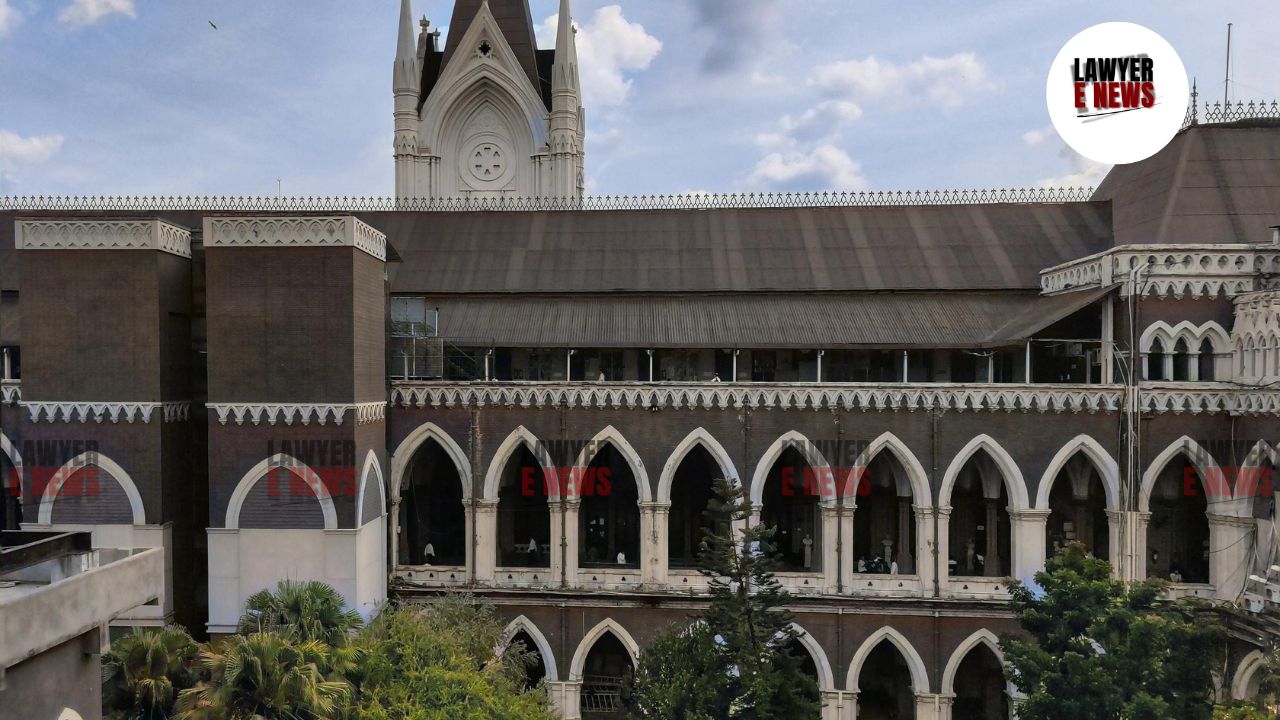-
by Admin
15 February 2026 5:35 AM



Calcutta High Court dismissed a civil revision petition sought to declare a 1956 Partition Deed null and void, alleging it violated the Waqf Act, 1995, and claimed the suit was not barred by limitation. The High Court rejected these arguments, affirming the Waqf Tribunal's finding that the Partition Deed was a valid family arrangement for residential purposes and not a transfer or exchange of Waqf property. The court also ruled that the suit was time-barred under Article 59 of the Limitation Act, 1963, as it was filed in 2016, nearly 60 years after the deed’s execution.
“Partition Deed Is Not Void Ab Initio”: Partition Held a Valid Family Arrangement Under Waqfnama Terms
The petitioners challenged the Partition Deed dated December 3, 1956, claiming it violated Section 51 and Section 104A of the Waqf Act, 1995, which bar the sale, exchange, or mortgage of Waqf property without prior sanction of the Waqf Board. However, the High Court upheld the Tribunal’s findings that the Partition Deed did not amount to a transfer or alienation but was a mere family arrangement for residential purposes.
Justice Bibhas Ranjan De noted:
"The Partition Deed was not a 'transfer' in the legal sense but an amicable family re-arrangement executed for the descendants of the Waqif for residential purposes, as allowed under the terms of the Waqfnama. It does not violate Section 51 or Section 104A of the Waqf Act." [Paras 15–17]
The court further emphasized that Clause 12 and Clause 16 of the Waqfnama explicitly permitted family members to use portions of the Waqf property for their residence and construction work at their own cost.
Waqf Property Retains Its Permanent Character: High Court on Nature of Waqf-alal-aulad
The court reiterated the doctrine that Waqf property, once created, remains Waqf in perpetuity. It ruled that the Partition Deed did not disturb the Waqf status of the property and that both the petitioners and respondents, as descendants of the Waqif, were entitled to use the property within the terms of the Waqfnama. Justice De observed:
"The property in question was Waqf, is Waqf, and will remain Waqf. No party can derive secular ownership or rights from the Partition Deed, which merely allocated portions for residential use as allowed by the Waqfnama." [Paras 10, 16]
The High Court addressed the petitioners’ argument that Section 107 of the Waqf Act, 1995, which excludes the applicability of the Limitation Act to recovery suits for Waqf property, barred the dismissal of their claim on limitation grounds. The court clarified that Section 107 applies only to suits for possession under Section 52 of the Waqf Act, not to cases seeking cancellation of deeds.
The petitioners also argued that they only became aware of the Partition Deed in 2016, when the respondents began constructing on the property. Rejecting this claim, the court held:
"Article 59 of the Limitation Act mandates that a suit to cancel or set aside an instrument must be filed within three years from the date of its execution or knowledge. The Partition Deed was executed in 1956, and there is no evidence to suggest the petitioners were unaware of it before 2016. The suit, therefore, is clearly barred by limitation." [Paras 20–21]
Partition Deed Cannot Be Termed an Exchange Under Section 118 of the Transfer of Property Act
The petitioners claimed the Partition Deed amounted to a deed of exchange and was thus invalid under Section 118 of the Transfer of Property Act, 1882, which governs mutual transfers of ownership. The High Court rejected this contention, stating:
"The essentials of a valid exchange under Section 118—mutual transfer of ownership—are absent. The Partition Deed merely allocated portions of the Waqf property for residential use without effecting any transfer of ownership." [Paras 13–15]
The High Court extensively reviewed the Waqfnama and the Tribunal’s reasoning. It noted that the Waqfnama allowed descendants to use Waqf property for residential purposes and perform religious and charitable activities. The Tribunal had rightly concluded:
"The Partition Deed is not a sale, gift, exchange, or transfer of Waqf property. It was executed for residential purposes by descendants who were joint Mutawallis at the time. The rights of the parties are confined to the terms of the Waqfnama." [Para 9]
The High Court found no error in the Tribunal’s dismissal of the petitioners’ claims, including their prayer for permanent injunction to restrain the respondents from using the property.
The High Court dismissed the revision petition, holding that:
The Partition Deed is valid: It was a family arrangement and not a transfer or exchange of Waqf property.
The suit is barred by limitation: Under Article 59 of the Limitation Act, the petitioners’ claim was filed 60 years after the execution of the deed, well beyond the three-year limitation period.
Waqf property retains its character: The property remains Waqf and is governed by the terms of the Waqfnama.
Justice De concluded:
"The Partition Deed executed in 1956 does not violate any provisions of the Waqf Act, 1995, or the Waqfnama. The rights of the petitioners and respondents are limited to the mandates of the Waqfnama, and no group has a superior claim over the other."
The revision petition was dismissed, and any interim relief previously granted was vacated.
This judgment reinforces the principle that Waqf property retains its permanent Waqf status and cannot be converted into secular ownership through family arrangements or other means. It also underscores the strict applicability of limitation laws to claims seeking cancellation of long-executed instruments, even in disputes involving Waqf property.
Date of Decision: January 22, 2025
